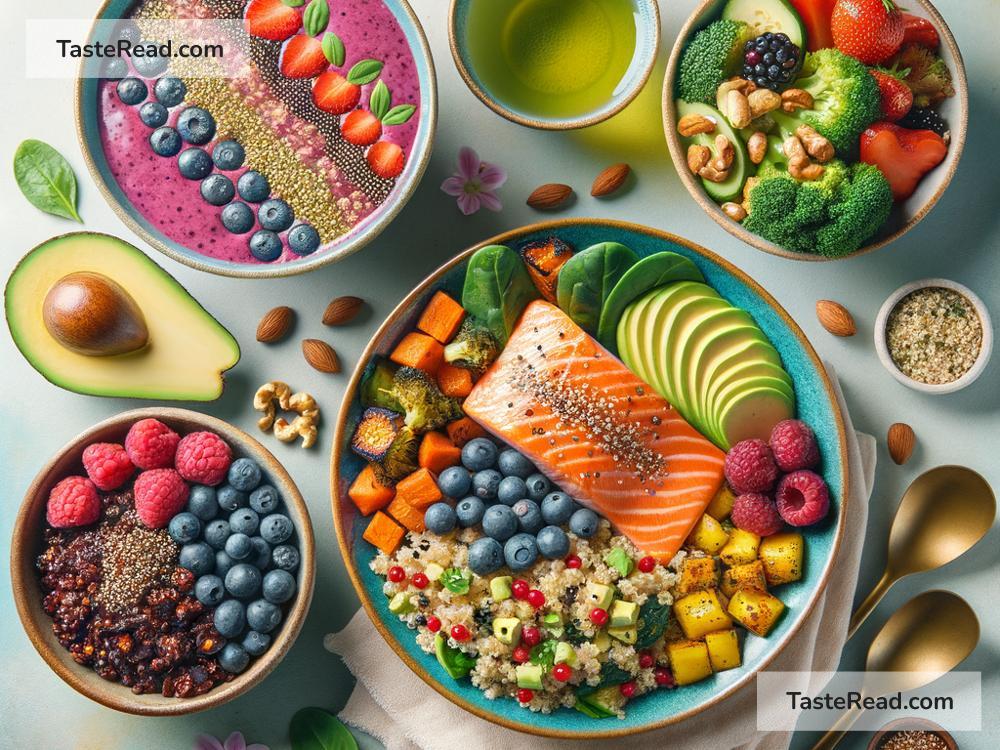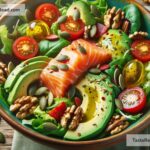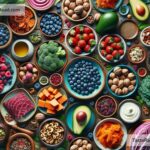Foods for Enhancing Recovery: Simple Choices for Feeling Better Faster
Recovery plays a vital role in how our bodies bounce back from challenges like exercise, illness, or surgery. Eating the right foods can speed up this process, helping us feel stronger and more energized. Whether you’re an athlete looking to ease sore muscles or someone healing from an injury, knowing what to eat can make a big difference in your recovery journey. In this article, we’ll explore the best foods for boosting recovery, explained in simple terms.
Why Is Nutrition Important for Recovery?
When your body is recovering, it works hard to repair damaged tissues, rebuild energy stores, and strengthen your immune system. During this time, your nutritional needs go up. Your body needs extra protein to repair muscles, carbohydrates to restore energy, and vitamins and minerals to support healing. Eating a balanced and nutritious diet provides the tools your body needs to do this.
Key Foods for Recovery
Here are some simple, wholesome foods that can help your body recover faster:
1. Protein-Rich Foods: Repair and Build
Protein is a key building block for muscles and tissues. After a tough workout or injury, protein helps your body recover and grow stronger. Good sources of protein include:
- Chicken or turkey – Lean meats are packed with protein without too much fat.
- Eggs – Easy to prepare and loaded with high-quality protein.
- Fish – Salmon and tuna also contain omega-3s, which reduce inflammation.
- Beans and lentils – Great plant-based options for protein and fiber.
- Greek yogurt – A creamy snack that’s high in protein and probiotics for gut health.
Pro tip: Aim to include protein in every meal to support steady recovery throughout the day.
2. Carbohydrates: Restore Energy
Carbs are the body’s primary source of energy. After exercise or sickness, eating carbohydrates helps replenish the energy stores in your muscles and cells. Opt for healthy carbs like:
- Rice and quinoa – Easy-to-digest grains that fuel recovery.
- Sweet potatoes – Rich in vitamins and slow-releasing carbs.
- Oats – A comforting, nutrient-packed breakfast option.
- Fruits – Bananas, berries, and oranges provide natural sugar for quick energy plus vitamins for healing.
Avoid refined carbs like pastries or sugary snacks, as they lack the nutrients your body needs to recover effectively.
3. Healthy Fats: Fight Inflammation
Fat isn’t always the enemy. Healthy fats can reduce inflammation, which is often a problem after injuries or intense workouts. They also provide lasting energy for your body during recovery. Good choices include:
- Avocado – A creamy fruit full of healthy fats, fiber, and vitamins.
- Nuts and seeds – Almonds, walnuts, chia seeds, and flaxseeds are excellent sources of omega-3s.
- Olive oil – A heart-healthy fat that works well in salads and cooking.
- Fatty fish – Salmon and mackerel support recovery with omega-3 fatty acids.
Just make sure you don’t go overboard with fats—small amounts go a long way.
4. Vitamins and Minerals: Support Healing
Vitamins and minerals play a key role in keeping your body running smoothly during recovery. Include foods rich in:
- Vitamin C – Found in citrus fruits, strawberries, and bell peppers, it helps repair tissues and boosts immunity.
- Vitamin D – Found in fortified foods like milk or naturally in fish, it supports bone recovery.
- Potassium – Bananas, spinach, and potatoes help your muscles recover and stay hydrated.
- Iron – Found in leafy greens, beans, and lean meats, iron boosts energy levels and helps deliver oxygen to cells.
Eating a colorful variety of fruits and vegetables will ensure you get plenty of recovery-boosting nutrients.
5. Hydration: The Unsung Hero
Water is arguably the simplest but most critical factor in recovery. Staying hydrated helps transport nutrients to your cells, flush out toxins, and keeps your muscles and joints functioning well. You can also hydrate with:
- Coconut water – Natural electrolytes make it great for replenishment.
- Herbal teas – Chamomile or green tea can calm inflammation.
- Broth-based soups – Warm, soothing, and hydrating, especially when you’re recovering from illness.
When in doubt, reach for water first. Drink consistently throughout the day, especially after exercise or sweating.
Recovery-Friendly Meals and Snacks
Here are a few simple ideas to combine recovery foods into tasty meals:
- Breakfast: Cooked oats topped with sliced bananas, almond butter, and chia seeds.
- Lunch: Grilled chicken salad with spinach, avocado, and an olive oil dressing.
- Dinner: Baked salmon with quinoa and roasted sweet potatoes.
- Snacks: Greek yogurt with berries, or a handful of nuts and a piece of fruit.
These meals are packed with the nutrients needed for recovery while staying easy to prepare and enjoy.
Final Tips for Enhancing Recovery
Recovery is about more than just food—it’s also about rest, hydration, and listening to your body. Pair your nutrient-packed foods with good sleep, stretches, and relaxation to allow your body the time it needs to heal. Remember, recovery isn’t an overnight process, but consistent care will lead to noticeable improvements.
If you’re ever unsure, check in with a doctor or nutritionist. Everyone’s recovery needs are a little different, and getting professional advice can help guide you toward the best choices for your situation.
By including these recovery-boosting foods in your diet, you’ll give your body the tools and fuel it needs to bounce back faster. Whether it’s for post-workout soreness or recovering from an injury, the right nutrition can make all the difference. Happy healing!


